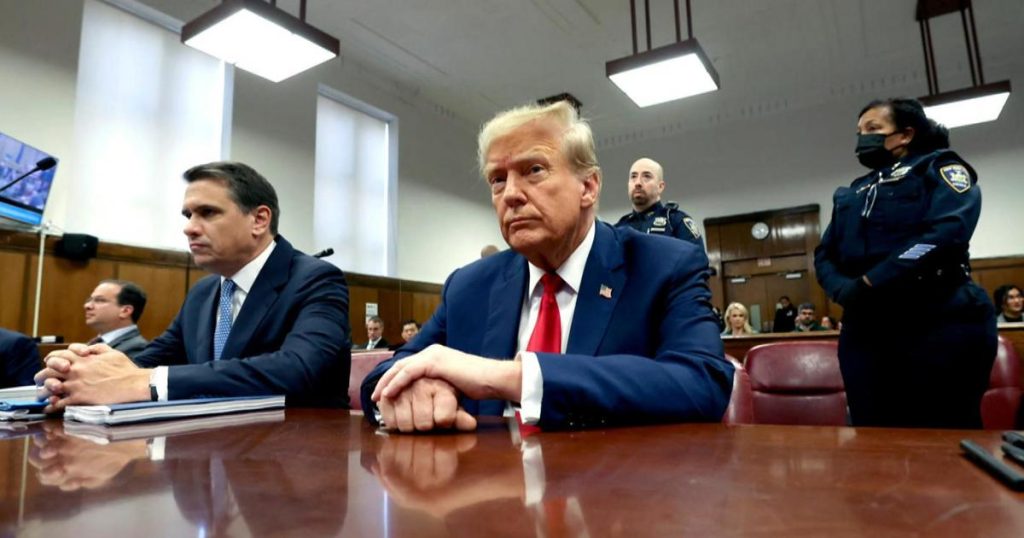David Pecker, the former publisher of the National Enquirer, testified in court about a “catch and kill” scheme that his paper allegedly engaged in during the 2016 presidential campaign. This scheme involved buying the rights to damaging stories about Donald Trump and then never publishing them. Pecker claimed that it was this scheme that ultimately led to the payment made to adult film star Stormy Daniels, in order to prevent her from going public with her story about an alleged affair with Trump.
The “catch and kill” scheme described by Pecker sheds light on the methods used by the National Enquirer to protect Trump during his campaign. By purchasing the rights to damaging stories and not publishing them, the tabloid effectively silenced potential negative press about the future president. This revelation raises questions about the relationship between the media, powerful figures, and the truth, as well as the ethical implications of such practices in the world of journalism.
Pecker’s testimony provides insight into the inner workings of a major tabloid publication and its ties to political figures. The National Enquirer’s role in shaping public perception of Trump during the campaign, as well as its efforts to suppress damaging information, highlight the potentially problematic influence of media organizations on political narratives. The revelation of this scheme adds another layer to the ongoing discussion about media bias, credibility, and the role of journalism in a democratic society.
The payment made to Stormy Daniels as part of this scheme serves as a focal point for understanding the lengths to which individuals and organizations may go to protect powerful figures from negative publicity. By silencing a potentially damaging story through financial means, the National Enquirer effectively shielded Trump from a scandal that could have had significant political implications. This raises important questions about transparency, accountability, and the integrity of the media in fulfilling its role as a watchdog for the public.
The implications of this alleged scheme extend beyond the personal reputations of those involved, to broader concerns about the manipulation of information and the impact on public discourse. The use of financial transactions to suppress unfavorable stories raises concerns about the ability of powerful individuals and organizations to control the narrative, shape public opinion, and evade accountability for their actions. This case underscores the importance of a free and independent press in exposing the truth and holding those in power to account.
Overall, Pecker’s testimony about the “catch and kill” scheme sheds light on the complex web of relationships between media organizations, political figures, and individuals seeking to protect their interests. The alleged practices described in this case raise questions about journalistic ethics, media integrity, and the role of the press in a democratic society. By revealing the inner workings of a major tabloid publication and its involvement in protecting Trump from damaging stories, this case underscores the need for transparency, accountability, and a commitment to truth-telling in the media landscape.


